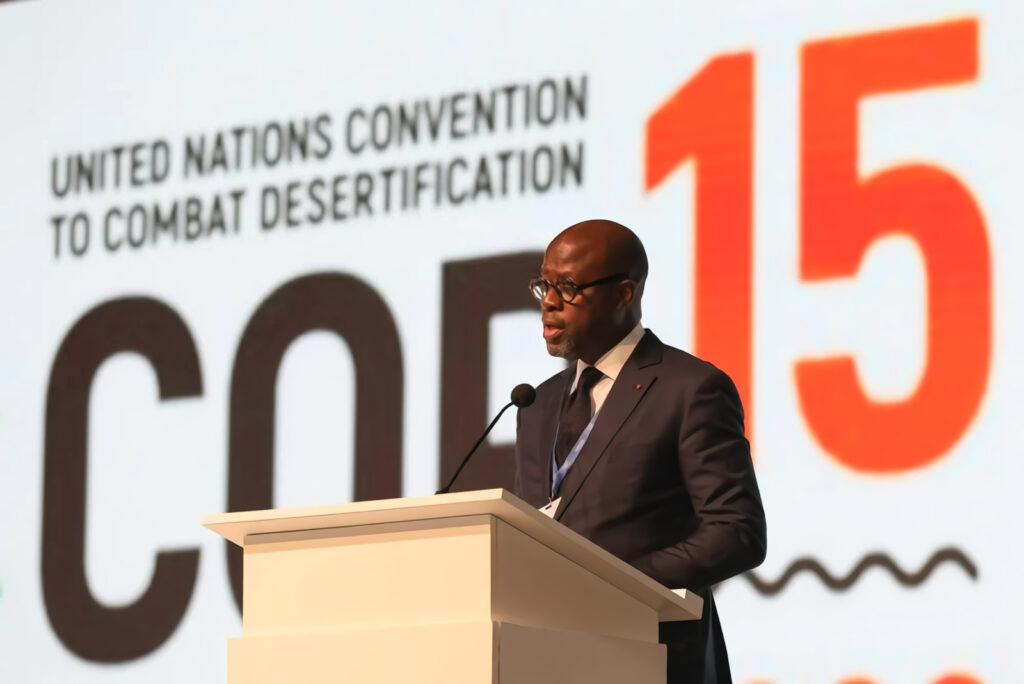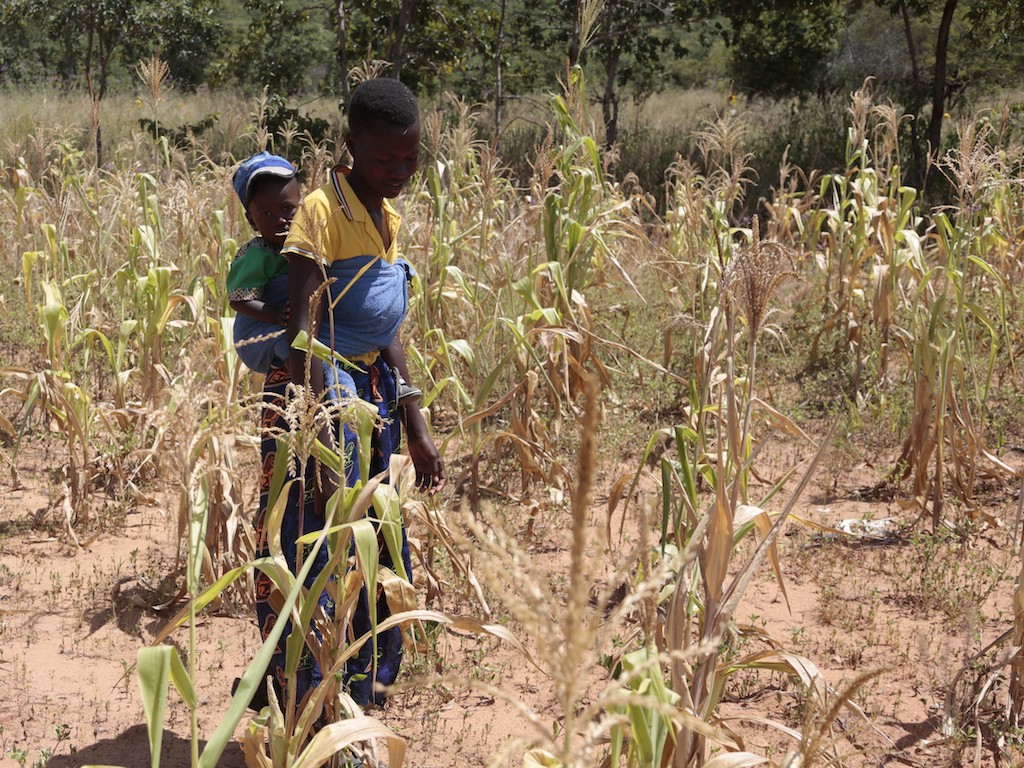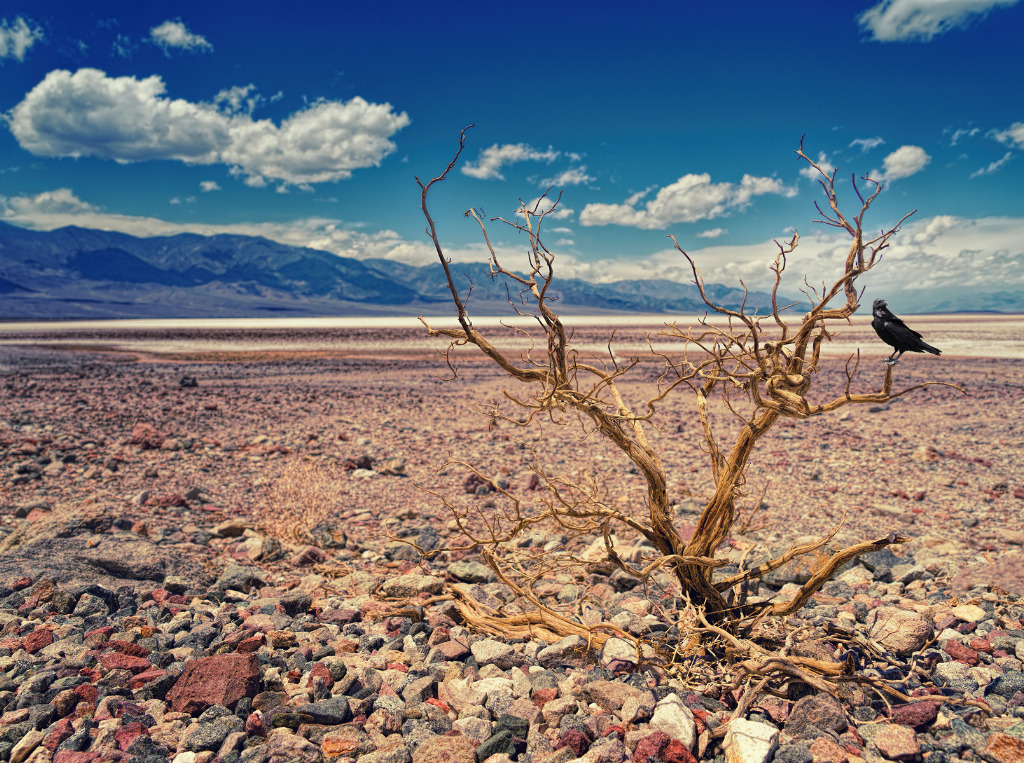UN Climate Expert Says Extreme Heat & Water Shortages Mean Global Food Supply Faces Major Risks Before 2030
4 Mins Read
The global food supply is likely to face major disruption due to extreme temperatures, intense floods and droughts, and harmful agricultural practices, well before the temperatures rise by the 1.5°C target laid out in the 2015 Paris Agreement. That’s according to the president of the UN’s desertification conference, who warns that the effects of climate change and water scarcity are endangering food security internationally.
Alain-Richard Donwahi, a former Ivory Coast defence minister who led last year’s COP15 desertification summit, told the Guardian that “some very bad things could happen” with soil degradation, water scarcity and desertification way before global temperatures rise by 1.5°C above pre-industrial levels.”Climate change is a pandemic that we need to fight quickly. See how fast the degradation of the climate is going – I think it’s going even faster than we predicted,” he said.
“We could have an acceleration of negative effects, other than temperature,” he added, pointing to the effects of droughts and climate change on food security, population migration and inflation. “Desertification and drought leads to climate change, leads to loss of biodiversity. And when you have climate change you have droughts, floods, storms.”
Donwahi also said poor farming practices aren’t helping: “The degradation of soil comes with bad habits, and the way we do our agriculture will lead to degradation of the soil. When the soil is affected, the yield is affected.”
The search for a solution

Countries signed the desertification treaty in 1992, alongside the UN framework conventions on climate change (the parent treaty to the Paris Agreement) and biodiversity. The Guardian says the desertification treaty gains the least attention of the three, with last year’s COP15 going “largely unnoticed” when compared to the climate COP27 and biodiversity COP15. The desertification summits are held less frequently, with the next conference in Riyadh in December 2024, versus the COP28 climate summit this November in the UAE.
Donwahi said the planet can’t afford to ignore desertification, stressing that “we need to solve all the problems together”. When talking about the effects of food security, he explained that it doesn’t just affect poor nations: “Climate change, droughts, storms, floods don’t know any boundaries, they don’t need a visa to go into a country.”
He added that wealthier countries should look to Africa – a continent rich in natural that can help cut emissions, enhance food security and preserve biodiversity – for solutions: “The people who have the finance should help the people who have the natural resources. It’s a win-win situation, a partnership situation.”
A recent report by the Climate Policy Initiative found that only 4.3% of all climate finance goes to food and agriculture – which is responsible for about a third of global greenhouse gas emissions – while less than 1% goes to components critical for climate mitigation, like food loss, waste and low-carbon diets. It’s complemented by a media coverage gap – only 7% of all reporting on climate change mentions animal agriculture, despite meat and dairy production contributing between 11.1% to 19.6% to total greenhouse gas emissions.
Donwahi called upon the private sector to get involved with the threat to global food security. “The private sector has an interest in agriculture, and the better usage of the soil. We’re talking about [improving] yields. We’re talking about agroforestry, which is another way the private sector can have a return on investment,” he said. “We have to be innovative, to find new vehicles for finance.”
Climate change and food security

The climate crisis has had a massive impact on global food security. Water scarcity has led to critically low levels of groundwater availability in India, which could, in turn, cause a food shortage for millions by 2025. A country with an overpopulation problem – it overtook China as the world’s most populous nation earlier this year – experts suggest government investment in cultivated meat could help boost its national food security and build a climate-resilient food supply chain.
Meanwhile, in 2020, droughts severely limited the water supply in Zimbabwe’s neighbourhoods – with many suburbs in Harare not receiving any water for up to six days a week – leading to widespread crop failures and, subsequently, critical food shortages.
In Mexico, extreme weather and droughts led to a shortage of chilli peppers last year, while mustard production fell by 50% in France and Canada. Heatwaves, storms, droughts, floods, fires and fluctuating rainfall patterns have all contributed to a dearth – and price hikes – of staples like wheat, corn, coffee, apples, chocolate and wine.
In Asia, such concerns are said to be the key drivers of the shift from animal to plant-based protein. Taiwan and Saudi Arabia recently announced startups and funding, respectively, to locally produce plant-based meat in a bid to boost their food security. And similarly, Singapore’s 30 by 30 initiative aims to reduce the island-nation’s reliance on imports by locally producing 30% of all food consumed by 2030, an effort supported by brands launching homegrown products, including Karana, Dynameat, TiNDLE and HerbYvore.



